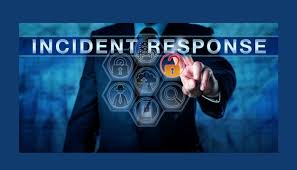Cybercrime Defense: What You Need to Know in Vietnam
In today’s digital age, the rise of the internet and advancements in technology have significantly transformed the landscape of crime, giving rise to cybercrimes that can pose serious threats to individuals and businesses. Cybercrime encompasses a wide range of illicit activities conducted online, including hacking, identity theft, fraud, and online harassment. As Vietnam becomes increasingly connected and digital, understanding the legal implications of cybercrime and knowing how to defend against allegations of such offenses are essential for preserving rights and navigating potential legal challenges. This article explores the nature of cybercrime in Vietnam, the legal framework governing these offenses, and effective strategies for defense.
Understanding Cybercrime
Cybercrime refers to criminal activities that involve the use of computers, networks, or the internet to commit unlawful acts. This includes:
- Hacking: Unauthorized access to computer systems or networks, often to steal sensitive data, disrupt services, or engage in fraudulent activities.
- Identity Theft: Illegally acquiring and using someone else’s personal information, such as Social Security numbers or bank account details, for fraudulent purposes.
- Phishing: Deceptive attempts to acquire sensitive information by disguising as a trustworthy entity in electronic communications, such as emails or websites.
- Online Fraud: Engaging in fraudulent schemes conducted over the internet, including scams involving the sale of goods, services, or investments.
- Malware Distribution: The use of malicious software designed to exploit or damage computer systems, including viruses and ransomware.
As digital crime evolves, so too must the legal frameworks that govern it.
Legal Framework for Cybercrime in Vietnam
The legal framework in Vietnam addressing cybercrime is primarily encapsulated within the Law on Cyber Information Security and the Penal Code. Here are key points concerning legal provisions:
1. Law on Cyber Information Security
This law regulates the security of information and systems in cyberspace, focusing on protecting against cyber threats. Key provisions include:
- Protection Measures: Establishing requirements for organizations to implement security measures to safeguard against unauthorized access and data breaches.
- Liability for Violations: Outlining penalties for violations related to unauthorized access, data theft, and the distribution of malware.

2. Penal Code
The Penal Code of Vietnam includes specific articles addressing cybercrimes, setting forth penalties for offenses such as:
- Article 226: Addresses acts of illegally accessing computer systems and networks, detailing penalties based on the severity of the infringement.
- Article 226a: Pertains to the unauthorized use of other people’s data, including identity theft and fraud.
- Article 287: Focuses on fraud through electronic means, laying out penalties for parties engaged in deceitful practices related to online transactions.
Steps to Take If You Are Accused of Cybercrime
Being accused of cybercrime can be a daunting experience, especially considering the significant legal repercussions involved. If you find yourself facing such allegations, here are key steps to take:
1. Engage a Cybercrime Lawyer
Finding a qualified cybercrime lawyer with experience in criminal defense is crucial for navigating the complexities of your situation. An attorney’s expertise can provide several advantages:
- Legal Expertise: A cybercrime lawyer understands the intricacies of Vietnamese laws governing digital offenses, enabling a comprehensive approach to defense.
- Case Evaluation: Engaging an attorney allows for a critical evaluation of evidence against you, determining strengths and weaknesses in the prosecution’s case.
2. Remain Silent
When facing allegations, it is important to exercise your right to remain silent:
- Avoid Self-Incrimination: Do not discuss the case with anyone except your attorney, as statements made can be used against you in court.
- Request Legal Counsel: If approached by law enforcement, request legal representation before answering any questions. This ensures your rights are protected.

3. Gather Evidence
Collecting relevant evidence is critical to building your defense:
- Documentation: Gather any documents, communications, or information that may support your case, such as emails, logs, and timestamps.
- Witnesses: Identify any individuals who may have relevant information and are willing to testify on your behalf.
4. Explore Defense Strategies
Your cybercrime attorney can work with you to explore various defense strategies, including:
- Challenging Evidence: Analyze how evidence was collected. If it was obtained through illegal means, your attorney may be able to challenge its admissibility in court.
- Establishing Lack of Intent: In many cybercrime allegations, intent plays a critical role. Demonstrating a lack of intent to commit a crime can be a viable defense strategy.
- Technical Defenses: Depending on the nature of the charge, your attorney may engage technical experts to testify or analyze the evidence, providing insights that might exonerate you.
5. Negotiation and Settlement
In some cases, negotiating with prosecutors may lead to a plea bargain or reduced charges:
- Cooperation: If you have relevant information that may benefit the prosecution, cooperating can sometimes lead to more favorable outcomes.
- Plea Bargains: Your lawyer can negotiate terms that might include reduced penalties or alternative sentencing options, avoiding the harsher consequences of a trial.
Best Practices for Organizations to Prevent Cybercrime
Organizations should take proactive measures to minimize the risk of cybercrime and protect themselves from potential liabilities. Key practices include:
1. Implement Robust Cybersecurity Measures
Establish strong cybersecurity protocols to protect sensitive data and systems from unauthorized access. This includes:
- Firewalls and Antivirus Software: Utilizing comprehensive security software to protect against malware and unauthorized intrusion.
- Access Controls: Limiting access to sensitive information to authorized personnel only, implementing strong password policies and multi-factor authentication.
2. Conduct Regular Training
Providing employees with training on cybersecurity best practices can help prevent cybercrimes, including:
- Cyber Awareness Training: Educate staff about phishing, social engineering attacks, and safe online practices.
- Incident Response Protocols: Train employees on how to respond to potential security breaches, including whom to notify and the steps to follow.
3. Develop an Incident Response Plan
Establishing a formal incident response plan outlining procedures for managing and reporting cyber incidents is essential. This plan should include:
- Identification and Assessment: Protocols for identifying and assessing the severity of cyber incidents.
- Containment and Mitigation: Steps for containing breaches and mitigating damages as quickly as possible.

4. Engage Legal Counsel for Compliance
Working with a legal expert specializing in cyber law can help organizations navigate compliance with laws and regulations that govern cybersecurity and data protection.
5. Regular Audits and Compliance Checks
Conducting regular audits can help identify potential vulnerabilities and ensure compliance with applicable laws and regulations. This proactive approach can prevent incidents before they occur.
Conclusion
The increasing prevalence of cybercrime necessitates that individuals and organizations remain vigilant in protecting themselves against potential threats. Understanding the legal landscape and engaging qualified legal representation is vital for effectively navigating cybercrime allegations. Organizations and individuals alike must prioritize due diligence and awareness to mitigate risks associated with digital offenses. By implementing robust security measures, fostering a culture of compliance, and seeking expert legal guidance, parties can successfully defend against cybercrime allegations and protect their rights in today’s digital age. This proactive approach not only secures valuable assets but also enhances trust and integrity in the evolving landscape of commerce.
